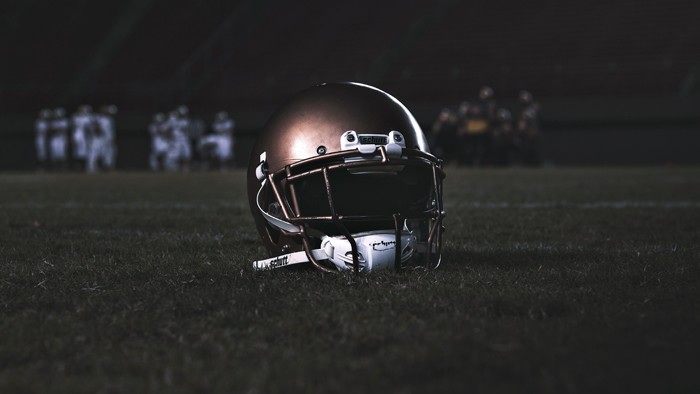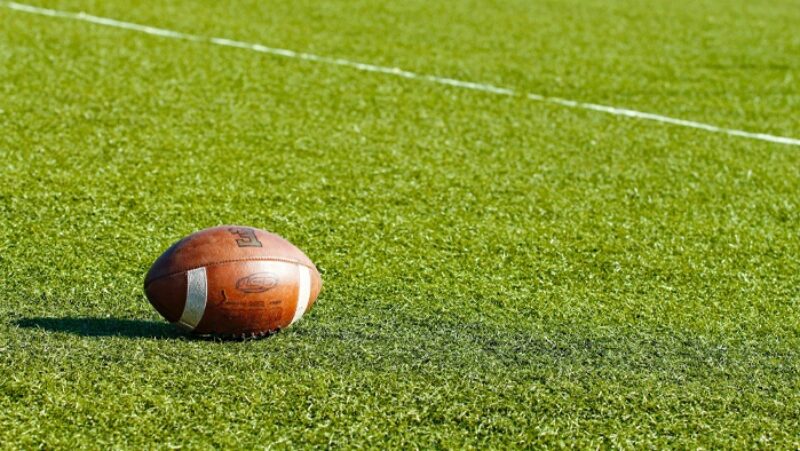Perspective: Public Schools Need Constitutional and Religious Literacy

When the starting tackle at McKinley High School in Canton, Ohio, showed up at practice one Monday this May, he didn’t realize how bad his week was about to get.
McKinley’s football coaches reportedly took issue with the teen’s conduct after he missed a voluntary training due to an injured shoulder. In a misguided attempt to punish his behavior, the coaches had him sit in the middle of the gym and eat a pepperoni pizza. The boy protested, not just to avoid the humiliation, but crucially, because he is a Hebrew Israelite. Many Hebrew Israelites, like this boy and his family, abstain from eating pork for religious reasons.
After repeatedly telling his coaches about the dietary restriction, according to his family, they partially relented by allowing the student to pick off the pepperoni slices, leaving the pork fat behind. Finally, the boy gave in. While he ate and worried about whether he would lose his position on the team, video shows his coaches and peers appear to berate him.
No student should have to choose between following their faith and participating in team sports. By disregarding the deepest beliefs of their students, educators risk placing those under their protection in unwinnable and potentially traumatizing situations — in addition to violating their First Amendment right to religious freedom.
Beyond the obvious health benefits, participating in high school athletics has been shown to develop a strong sense of community, boost academic performance, reduce stress and even increase lifetime earnings. However, whether it is a Hebrew Israelite starting tackle facing punishment or a Muslim team captain reciting the Lord’s Prayer before a game, many adolescents feel obligated to demonstrate belonging and respect to their peers even if that means compromising their religious beliefs.
Respecting human dignity is not an explicit demand of the First Amendment. Instead, in the case of public schools, it requires that the religious beliefs of students be accommodated whenever possible. This expression of “free exercise,” alongside a prohibition against establishing one religion over another or belief over non-belief, serves both as our constitutional right to religious freedom and a framework for living with difference. Public school educators, including coaches, are bound to protect the religious freedom rights of every student. And any American who advocates for the rights of others to live according to their deepest beliefs protects that same right for themselves.
Religion is inextricably tied to all aspects of human expression. Religious literacy is the ability to understand the impact of religion, both on society and on the way billions of individuals shape their daily lives. Religiously literate people do not just have a basic understanding of religious doctrines and practices but, more importantly, are able to engage with religious difference openly and protect the First Amendment rights of others.
It is unclear what the coaches — who have since been fired, but vehemently deny the family’s account of the incident — knew about their player’s dietary restrictions or Hebrew Israelites as a religious group. Nevertheless, the event in Ohio demonstrates the crucial role religious literacy plays in the First Amendment. In order to defend the First Amendment rights of students, particularly in regard to religious freedom, educators must understand what they are required to protect.
No one is asking individuals to memorize hundreds of dietary laws across all religions. Instead, a religiously literate person simply recognizes that many religious people, for a variety of reasons, follow the dietary customs of their faiths. Understanding how religious identity is shaped and how religions are diverse and dynamic not only allows religiously literate people to adapt to new traditions and practices, but also encourages empathy across difference. In this case, it may have been helpful for those involved to know that many Hebrew Israelites do not eat pork, but that is not critical information for respecting the student’s free exercise rights. What is crucial is the ability to discern religious identity and expression in the multitude of forms they take. Doing so requires at least some religious literacy.
Religious literacy resources:
- Freedom Forum’s Constitution 2 Classroom lesson plan collection
- Harvard’s Pluralism Project
- The American Academy of Religion’s Religious Literacy Guidelines
Public schools are bound by the First Amendment to protect these rights. They also have a civic responsibility to prepare young Americans for productive life in a globalized world. To accomplish both, teachers, administrators and coaches must know and model First Amendment principles including religious literacy for their students. Likewise, parents, guardians, community leaders and other stakeholders are better prepared to advocate for themselves and others when they understand the role of the First Amendment and the value of religious literacy in a diverse society.
David Callaway is the former religious freedom specialist for the Freedom Forum.
Perspective: Tide May be Turning Toward Religious Exemptions From Vaccine Mandates
Kennedy v. Bremerton: A First Amendment Analysis
Related Content
$30,000 Giving Challenge
Support the Freedom Forum’s First Amendment mission by Dec 31st and double your impact.

